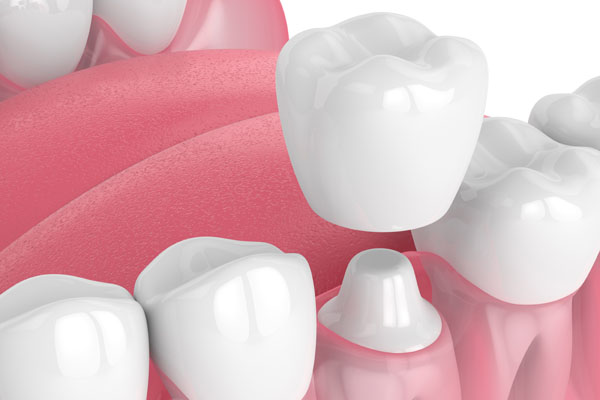 For those who severely damage or lose a permanent tooth, dental implants can restore the appearance and function of a healthy smile. This option produces a durable and more natural-looking replacement than other alternatives, such as crowns or bridges. While the treatment process can be lengthy, most patients find they can return to a normal lifestyle after recovery. This includes using an electric toothbrush for daily home care. Still, it is important to maintain proper practices to help protect the implant from damage or failure.
For those who severely damage or lose a permanent tooth, dental implants can restore the appearance and function of a healthy smile. This option produces a durable and more natural-looking replacement than other alternatives, such as crowns or bridges. While the treatment process can be lengthy, most patients find they can return to a normal lifestyle after recovery. This includes using an electric toothbrush for daily home care. Still, it is important to maintain proper practices to help protect the implant from damage or failure.
Patient concerns about new dental implants
Many individuals who receive implants are worried about the screws loosening over time. However, this is unlikely if the procedure is performed well by an experienced professional and the patient follows instructions for follow-up care. Research has shown that electric and sonic toothbrushes, which do produce small vibrations in the mouth, are actually beneficial in preventing bone loss, gum disease and tooth decay. This type of stimulation is more likely to maintain the life of the implant when performed correctly.
The importance of proper brushing and flossing
Just as with natural teeth, implants should be brushed and flossed on a daily basis. While some initial appointments may be scheduled for evaluation, the patient should soon be able to return to regular checkups every six months.
Benefits of electric toothbrush use
Although a regular, manual toothbrush is sufficient for good oral health, electric toothbrushes may be a more favorable option. These devices are more efficient at stimulating soft tissues and circulating fluids and toothpaste into tight places. Electric versions can replicate anywhere from 2,500 to 7,000 brush strokes per minute, while sonic models move at a rate of around 30,000 strokes per minute.
Proper technique for safe and healthy home cleaning
Many dental professionals recommend using a manual toothbrush during the first few weeks after implant placement. This practice can help prevent irritation of sensitive tissues during the healing process. Once the area is healed, an electric toothbrush is an excellent choice for routine home cleaning.
Patients should be careful to apply only gentle pressure with light, sweeping movements. Aggressive brushing can lead to gum irritation, enamel loss and damage to the implant tooth cap. Regular flossing should also be maintained. In addition, patients may benefit from using an oral irrigation system to clean beneath the gum line.
Risks of poor oral hygiene after implants
One of the biggest potential problems with dental implants is an increased risk of infection. While this can occur if the body rejects the implant, it is more likely to happen when the site is not properly cleaned. Individuals who undergo this type of treatment should take extra care to develop healthy oral care routines while visiting the dentist as often as recommended.
Check out what others are saying about our dental services on Yelp: Dental Implants in Everett, MA.
Conclusion
Dental implants are an effective solution for tooth replacement. While follow-up care during recovery may differ from normal habits, regular brushing can usually resume shortly thereafter. It is always prudent to consult a dentist on specific instructions. Electric toothbrushes are often an excellent choice for daily care due to their ability to clean thoroughly and efficiently.
Request an appointment or call GK Dental PC at 617-826-6075 for an appointment in our Everett office.
Recent Posts
A missing tooth can lead to many cosmetic and health complications. Dental implants are an effective method for treating tooth loss and restoring a person's smile. They can prevent other issues from developing, including: Speech and digestive problems Damage to surrounding teeth Improper alignment Tooth and jaw painThe results are typically permanent, and implants are…
Dental implants enable you to get as close as you can get to replacing your natural teeth roots, both in terms of function and health benefits. Dental implants require regular care like your natural teeth, which is the only way to ensure that your implant-supported teeth can last a lifetime. Read on to learn about…
A patient may invest in dental implants for a variety of different reasons, many of which focus on positively changing personal image and improving overall oral health. Implants are often applied when patients are missing one or more teeth and are not interested (or have had no success with) dentures or dental bridges. To understand…


